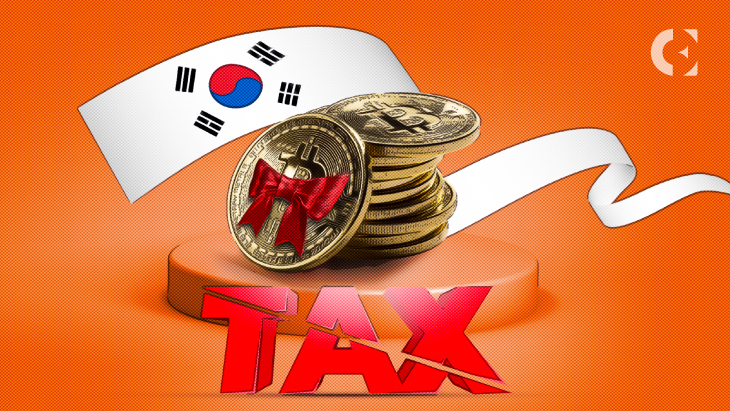- South Korea’s Ministry of Economy and Finance suggests discussing crypto taxation alongside traditional investments in the National Assembly.
- Potential scrapping of the virtual asset tax, initially planned for January 2025, could exempt crypto investors from a 22% tax on income exceeding 2.5 million won.
- South Korea’s top financial regulator maintains its stance of not recognizing virtual assets as financial assets.
Cryptocurrency investors in South Korea may be in for a surprise as the country’s Ministry of Economy and Finance considers exempting crypto gains from taxation, alongside plans to scrap the financial investment income tax.
Jeong Jung-hoon, Deputy Minister of the Tax and Customs Office at the Ministry of Economy and Finance, suggested that the National Assembly, South Korea’s national legislature, should discuss including crypto alongside traditional financial investments in the upcoming tax reform.
Responding to a public query at the People’s Livelihood Debate about scrapping the crypto tax alongside the financial investment income tax, Jeong stated, “It is also necessary to discuss it in the National Assembly.”
“We plan to submit an amendment to the Income Tax Act to the National Assembly to abolish the financial investment income tax at the end of January or early February,” Jeong said, adding, “I hope it can be processed in February before the general election.”
This comes as a twist, considering the government’s initial plan to implement virtual asset taxation starting January 2025. Under the current income tax law, income generated from transferring and renting virtual assets is classified as “other income” and subject to taxation.
However, the potential scrapping of the virtual asset tax would mean significant changes for crypto investors, who would be exempt from the 22% tax rate on income exceeding 2.5 million won.
Early this year, South Korean President Yoon Suk Yeol pledged to cancel the proposed capital gains tax on financial investments to boost investor confidence and stock values. He emphasized that despite global competitiveness, the country’s equity markets are undervalued.
Meanwhile, South Korea’s top financial regulator maintains its stance of not recognizing virtual assets as financial assets and prohibits financial institutions from investing, including launching crypto exchange-traded funds (ETFs). The regulator cites concerns about financial market stability and investor protection as reasons for maintaining the current restrictions.
Disclaimer: The information presented in this article is for informational and educational purposes only. The article does not constitute financial advice or advice of any kind. Coin Edition is not responsible for any losses incurred as a result of the utilization of content, products, or services mentioned. Readers are advised to exercise caution before taking any action related to the company.







